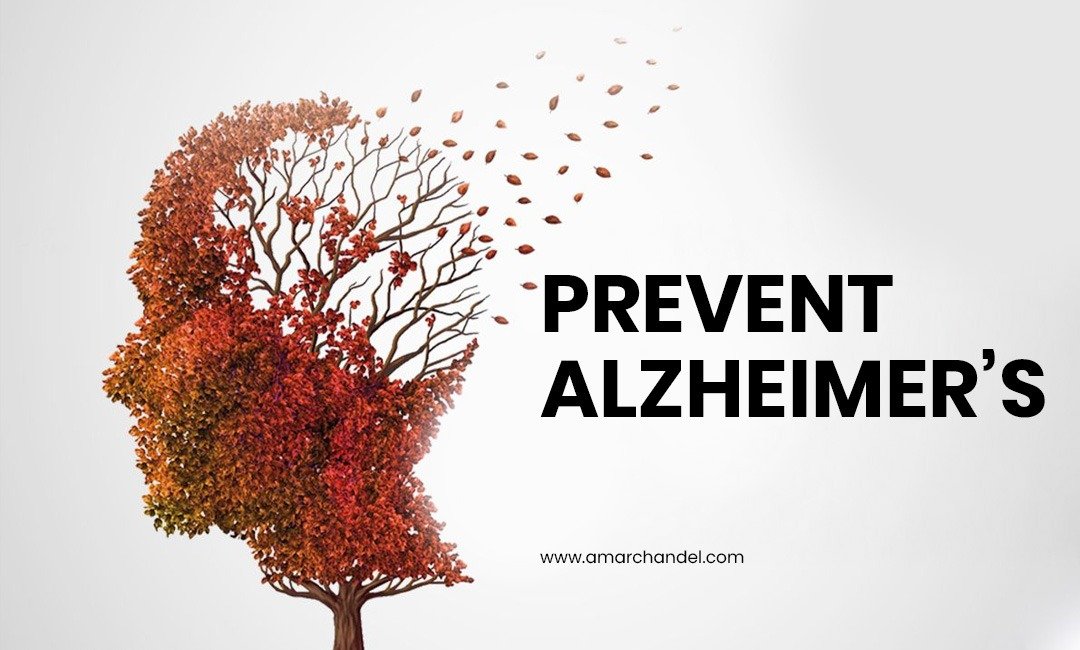Despite decades of research, Alzheimer’s remains incurable as neuronal loss cannot be reversed without risking identity changes. This underscores prevention through lifestyle as the most viable strategy.
India faces a rapidly increasing dementia burden—over 4 million Indians live with dementia today, with numbers expected to surge as lifespans increase.
Vascular and metabolic risk factors—diabetes, hypertension, obesity—are highly prevalent in India and strongly linked to dementia onset and progression.
The 2024 Lancet Commission estimates nearly 50 % of dementia cases globally could be prevented by addressing 14 modifiable risk factors; even tackling a subset offers substantial benefit.
In Indian cohorts, lifestyle and vascular control could reduce dementia risk by up to 40 %.
Historically, Alzheimer’s incidence among Indians aged 70‑79 was found to be 4.4‑fold lower than in the U.S., possibly due to turmeric-rich diets and higher intake of flavonoid‑rich spices like clove and tea.
More recently, AIIMS highlights common Indian deficiencies—magnesium, DHA, Vitamin B12, Vitamin D, creatine—which are tied to increased neurodegeneration risk; balanced diet or mindful supplementation can help.
Physical & Mental Activity: Dual Benefits
Meta‑analyses confirm that combining physical activity with healthy diet and social engagement is associated with a 37% reduction in Alzheimer’s risk among those with multiple healthy lifestyle behaviours.
A 2025 Indian news‑highlighted study reports cycling in mid‑life reduces dementia risk by up to 40 %, owing to improved blood flow and neural stimulation.
Walking also plays a critical role: slowed gait and weak leg strength may precede cognitive decline. Practices like “dual‑task walking” (e.g., walking while solving puzzles) stimulate both mind and body and support vascular brain health.
Trials like Finland’s FINGER and the U.S.’s POINTER demonstrate that structured interventions—targeting diet, exercise, cognitive training, stress reduction, and vascular monitoring—maintain or improve cognition in at‑risk adults.
A 2024 randomised trial showed that intensive lifestyle modification even in early Alzheimer’s improved cognition and biomarkers over just 20 weeks.
India is launching cohort studies and rural–urban trials tailored to cultural context, aiming to develop scalable, low‑cost interventions.
Recent Cambridge research links air pollution to higher dementia risk via brain inflammation pathways—India’s air quality crisis makes this especially urgent.
A Harvard study affirms that cardiovascular health (via diet, exercise, sleep, stress management) is vital to brain ageing prevention—a concern especially relevant given India’s rising heart‑health burden.
Mental stimulation—through reading, learning, games, bilingualism and engagement—is known to build “cognitive reserve” that delays symptom onset .
Lifestyle Recommendations: A Preventive Blueprint
A brain-healthy lifestyle for preventing Alzheimer’s begins with a nutrient-rich, balanced diet. Traditional Indian foods offer powerful neuroprotective compounds. Incorporating turmeric (curcumin), leafy greens like spinach, omega-3 sources such as flaxseeds, legumes, nuts, and antioxidant-rich spices like clove and cinnamon can support long-term brain health.
Addressing widespread micronutrient deficiencies—especially in vitamin B12, vitamin D, DHA, magnesium, and creatine—is critical. Many vegetarians and elderly Indians may unknowingly lack these nutrients, making supplementation or dietary adjustments necessary under medical guidance.

Physical activity plays a vital dual role—supporting both vascular and cognitive health. You should aim for at least 150 minutes of moderate activity per week, including walking, cycling, or yoga. Strength training and flexibility exercises (e.g. Surya Namaskar) improve muscle mass and circulation, particularly in ageing adults. Activities that combine physical and mental stimulation—like “dual-task walking,” where one walks while solving mental puzzles—are especially beneficial for the brain, as shown in AIIMS-supported guidance.
Equally important is control of vascular risk factors. You should routinely monitor blood pressure, blood sugar, and cholesterol. Lifestyle diseases such as diabetes and hypertension are highly prevalent and directly contribute to accelerated brain ageing and dementia risk. Maintaining a healthy weight, minimising refined sugars, and reducing processed food intake are key steps. Periodic health check-ups, especially after age 40, help manage these silent risk factors early.
Cognitive health also requires consistent mental and social engagement. Reading, writing, solving crosswords or Sudoku, learning new languages or musical instruments, and staying socially active in satsangs, community groups, or cultural activities help build “cognitive reserve”—the brain’s resilience against damage. For bilingual Indians, speaking multiple languages is an additional protective factor shown to delay dementia symptoms.
Good sleep and stress management are often neglected but vital pillars. Quality sleep of 6-7 hours per night is essential for memory consolidation and toxin clearance from the brain. Mindfulness practices, guided meditation, chanting, pranayama, or traditional yoga can significantly reduce chronic stress and improve brain function. These age-old tools now have strong global scientific backing.
Finally, environmental awareness is becoming increasingly critical. Air pollution has been directly linked to brain inflammation and dementia risk. Indians, especially in urban and industrial areas, should consider masks, indoor air purifiers, or relocation of vulnerable elders to cleaner environments when possible. Avoiding smoking and minimising exposure to household pollutants like incense or cooking fumes in poorly ventilated homes is also advisable.

Together, these interconnected lifestyle choices create a powerful, preventive foundation against Alzheimer’s disease—one that is affordable, culturally rooted, and evidence-backed for Indian populations.
Conclusion
Modern evidence strongly supports the notion that Alzheimer’s is largely preventable through multidomain lifestyle measures: a brain-healthy diet rich in traditional nutrients, regular physical and mental activity, environmental consciousness, and vascular and emotional self-care.
While a cure remains elusive, prevention is realistic—and essential—in the Indian context.
References
1. Sathianathan & colleagues (2018) on dementia prevention in India
2. Ravindranath et al. (2021), Indian dementia epidemiology and intervention priorities
3. Arshad et al. (2022) – lifestyle reducing dementia risk by up to 40 % in India
4. Lancet Commission (2025 update) – nearly 50 % of dementia preventable globally via modifiable risk factors
5. AIIMS neurosurgeon’s micronutrient analysis (2025)
6. FINGER, POINTER & JAMA‐reported structured interventions (2025 US/Finland)
7. Cycling study in mid‑life reduces dementia risk (~40 %)
8. Walking & gait changes precede cognitive decline; dual‐task walking insight (AIIMS, 2025)
9. Cambridge study on air pollution and dementia risk
10. Harvard brain–heart link; lifestyle changes slow brain and heart aging
11. Meta-analyses on healthy‑lifestyle score correlating with 37 % lower Alzheimer risk
12. WHO‑style guidelines on mental activity and cognitive reserve


Give a Reply